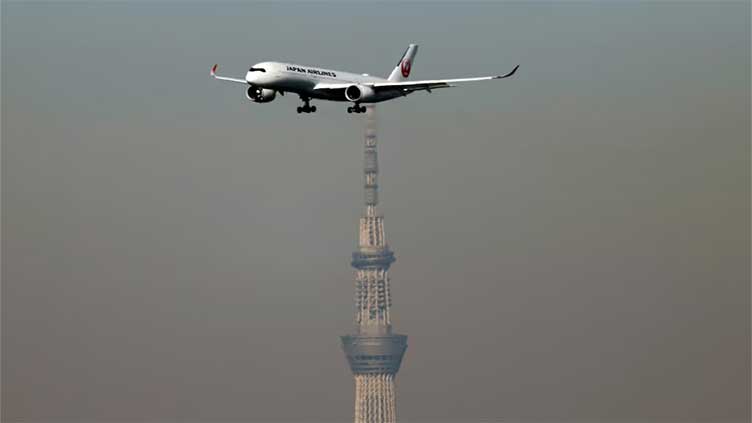Airbus wins most of Japan JAL's order for 42 new planes

Business
Airbus wins most of Japan JAL's order for 42 new planes
TOKYO/SEOUL (Reuters) – Japan Airlines will buy 42 planes from Airbus and Boeing, it said on Thursday, in a breakthrough for European planemaker Airbus, which will provide single-aisle jets to the long-time Boeing customer for the first time.
South Korea's largest carrier, Korean Air also said it would order 33 Airbus A350s in a deal valued at $13.7 billion that is its first purchase of that aircraft family, as it prepares for a merger with Asiana Airlines.
The landmark purchases make the two Asian airlines the latest to wade into a tightening market for long-haul aircraft after a prolonged downturn in demand for the industry's big jets.
Higher-efficiency jets are in high demand as international travel nears a full recovery from the COVID-19 pandemic and supply chain problems, leading to competition for planes and engine and maintenance contracts.
"The airline will continue to prioritise fleet modernisation and reduction of carbon emissions," Korean Air said in a statement, adding that new aircraft and sustainability efforts would help attain its goals.
In its statement, Japan's second-largest airline said it plans to buy 21 Airbus A350-900 and 10 Boeing 787 Dreamliner wide-body jets, as well as 11 A321neo narrow-body jets.
An extra A350-900 will also be bought to replace one destroyed in a runway collision at Haneda airport in January, JAL said.
Delivery is expected between financial years 2025 and 2033 and the order has a total catalogue price of about $12.39 billion.
JAL said it was ordering the more efficient, new-generation planes for its full-service and low-cost carrier operations now because of the global shortage of new planes, which is expected to persist for some time.
In 2013, Airbus made its first sale to JAL, which had traditionally been a customer of US planemaker Boeing, with A350 planes.
Airbus says the A350s use 25% less fuel than similar older generation planes.
JAL added that a robust recovery in passenger demand helped lift its group net profit forecast to 90 billion yen ($596 million) for the current year ending in March, up from 80 billion.
The latest estimate topped a forecast for average profit of 85.4 billion yen from 10 analysts, IBES data showed.


